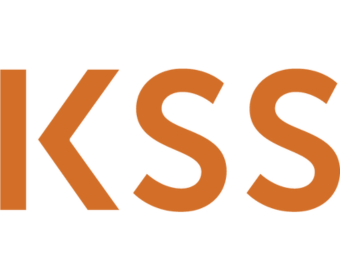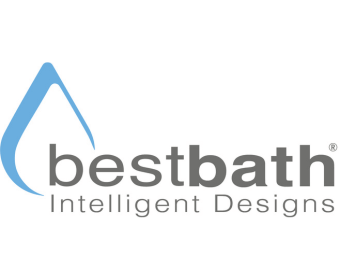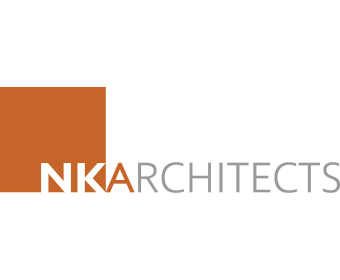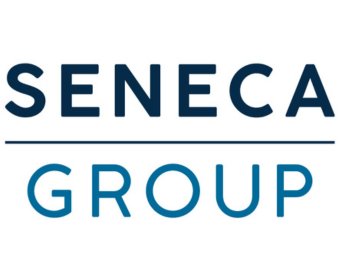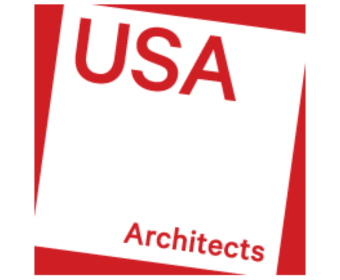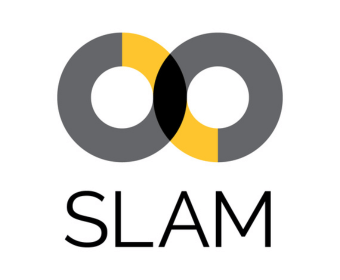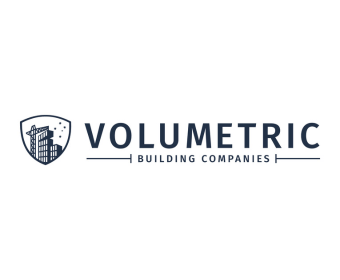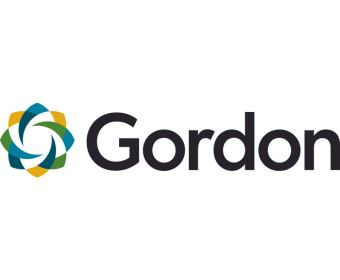- Integrated Planning
Integrated Planning
Integrated planning is a sustainable approach to planning that builds relationships, aligns the organization, and emphasizes preparedness for change.
- Topics
Topics
- Resources
Resources
Featured Formats
Popular Topics
- Events & Programs
Events & Programs
Upcoming Events
- Community
Community
The SCUP community opens a whole world of integrated planning resources, connections, and expertise.
- Integrated Planning
Integrated Planning
Integrated planning is a sustainable approach to planning that builds relationships, aligns the organization, and emphasizes preparedness for change.
- Topics
Topics
- Resources
Resources
Featured Formats
Popular Topics
- Events & Programs
Events & Programs
Upcoming Events
- Community
Community
The SCUP community opens a whole world of integrated planning resources, connections, and expertise.

- Event Home
- Program
- Registration
- Scholarship
- Call For Proposals
- Speaking Resources
Access session recordings on the program page.
Join us for SCUP’s Mid-Atlantic 2021 virtual Regional Conference.
The 2021 program will offer you the opportunity to participate over the course of five consecutive afternoons, giving you the morning to attend to your daily responsibilities and leaving the afternoon to be SCUP focused. You’ll get re-energized through community connections, fill your strategy toolbox with valuable lessons learned and other tools, and get the perspectives you need to keep your planning on track and aligned!
Integrated Planning Comes Alive.
The need for integrated planning on campuses has been gaining momentum over the last several years as higher education has been experiencing unprecedented upheaval and the SCUP community is responding! We look forward to the strategies, tools, and experiences leaders will share in March.
Let’s plan for the long run together.
Conference Format.
Each day will feature a keynote presentation from a different Mid-Atlantic “host” institution representing the diversity of the region’s colleges and universities. To accompany these keynotes, we will have selected timely and relevant concurrent sessions from the call for proposals.
All sessions will be recorded and available to you within two business days of the live event.
Featured Speaker
Vice Provost and Dean of StudentsUniversity of PittsburghPartner and Director of PreservationVoith & Mactavish ArchitectsUniversity PlannerVirginia Commonwealth UniversityVice President, Finance & ManagementMorgan State UniversityDirector of Planning and DesignVirginia Commonwealth UniversityVice President for Facilities ManagementVillanova UniversityChief Facilities OfficerNorthern Virginia Community College (NOVA)PartnerRobert A.M. Stern ArchitectsSenior Project Manager, Facilities Management OfficeVillanova UniversityAssociate Vice President for AdministrationNorthern Virginia Community College (NOVA)Assistant Director of Planning and DesignVirginia Commonwealth UniversitySponsorship Opportunities
Support your region and gain valuable visibility while you engage in the conversations that will help institutions face today’s challenges and those to come.
Program
How to Access Recorded Sessions
Conference attendee?
- Log in. (Note: Use your existing SCUP login. If you do not know your login information click on “forgot your password” on the login screen. Please do not create a new account.)
- Browse the program below and click the Access Recorded Session button.
Not a conference attendee?
- Complete series ($249/members; $425/nonmembers) Add to cart.
- Individual sessions ($35/members; $50/nonmembers)
- Select an individual session(s) from this list of recordings, click the session’s title, then click the purchase button. You will need to log in or create an account if you are new to SCUP.
How to Claim CEUs
To claim credits and download a self-report certificate for this conference, please login to the SCUP Events Portal and follow the directions as outlined in this PDF. SCUP will automatically report credits to AIA for attendees who were present for the entire live session and have their AIA member number in their account. After the conference, you claim credit for recorded sessions by filling out an evaluation and taking a quiz.SHOW: All Sessions Workshops ToursMonday, March 8, 20211:30 pm–2:45 pmOpening Remarks & Keynote | Northern Virginia Community College (NOVA)Keynote | Northern Virginia Community College (NOVA)
Presented by: Steven M. Patterson, Chief Facilities Officer, Northern Virginia Community College (NOVA) | Cory F. Thompson, Associate Vice President for Administration, Northern Virginia Community College (NOVA)
2:45 pm–3:15 pmBreak3:15 pm–4:15 pmConcurrent SessionsLeveraging Landholdings to Promote Equity and Inclusion at Gallaudet University
Presented by: Hansel Bauman, Principal, Hansel Bauman architecture + planning | Samuel Swiller, Director, Strategic Real Estate Planning, Gallaudet University | Todd Ray, Principal, Page Southerland Page, Inc.
Gallaudet University actively engages in joint-venture enterprises to promote diversity, equity, and inclusion in the public realm by leveraging university aspirations to create a more socially-just society. In this session, we’ll share how Gallaudet’s 2022 campus master plan motto ‘From Isolation to Innovation’ inspires mixed-use redevelopment to serve as a bridge between languages and social barriers. Come learn how you can facilitate agency for all by using our model for leveraging campus assets to develop more equitable space and improve the wellbeing of your campus community.
Learning Outcomes
- Engage a broader diversity of voices to help imagine a more inclusive design for campus environments.
- Be mindful of dimension, form, light, material, texture, and color in order to shape environments that reflect different histories, abilities, and ways of experiencing the world.
- Explain how to create adaptive environments designed for those with disabilities while envisioning an inclusive environment that ultimately works for everyone.
- Describe an appropriate campus environment for users whose interactions must rely on visual and tactile communication.
Continuing Education Units
AIA LU/HSW 1.0 Unit (SCUPM21C1145)
AICP CM 1.0 UnitPlanning Types: Campus Planning, Diversity, Equity, and Inclusion Planning
Tags: Campus Master Planning, Diversity Equity and Inclusion (DEI), Real EstateThe Kitchens: How a Culinary Arts Program Supports Multifaceted Community Revitalization
Presented by: Charles Tilley, Principal, Quinn Evans | Elizabeth Littlefield, Vice President for Institutional Advancement and Strategic Planning, Reynolds Community College
The Kitchens at Reynolds Community College (RCC) exemplify a developing national model, featuring public and private organizations in a successful collective effort to boost economic development and healthier outcomes in a historically under-resourced community. Integrated planning for The Kitchens involves community partnerships and collaboration in education, health and wellness, workforce training, and economic revitalization. In this session, you’ll learn how RCC delivers culinary workforce training and academic programs in a satellite facility at the heart of a poverty-concentrated area, pushing back economic isolation and promoting learning and health.
Learning Outcomes
-
- Assess the needs of your institution’s surrounding community and find opportunities for building public-private partnerships to support underserved constituencies.
- Determine how your institution can create a community asset that addresses social determinants of health to improve health outcomes for marginalized populations.
- Develop metrics for evaluating program effectiveness across enrollment, student development and placement, economic development, health outcomes, and community service.
- Formulate approaches for positioning your institution’s educational programs to highlight partnerships and the narrative of a much broader community impact on health and economic development.
Continuing Education Units
AIA LU/HSW 1.0 Unit (SCUPM21C1138)
AICP CM 1.0 UnitPlanning Types: Academic Planning, Strategic Planning
Tags: Community College, Community Engagement, External Collaboration / Partnerships, Health and Wellness, Measuring the Plan, Public-Private Partnerships (P3), Workforce DevelopmentThe Library in Transition: A Community College Hub for Student Success
Presented by: June Hanley, Vice President and Principal Planner, HDR, Inc. | Joan Bush, Ed.D. Dean, Educational Support Services, Community College of Philadelphia | Michael Krasulski, Department Chair, Library and Educational Resources, Community College of Philadelphia | Anna Seixas, Associate Professor and Chair, Learning Lab and Student Academic Computing Center, Community College of Philadelphia
The needs of inner-city community college students are widely varied. Community College of Philadelphia’s (CCP) primary function is to provide them with tools and assistance to help them succeed, which is also the purpose of its newly-renovated library. Today’s library is no longer just a book repository, but also an important communal hub for students. The transformation of CCP’s library will aid a diverse student body with learning, tutoring, research, and social spaces. We’ll share new ways for your institution’s library to address these student needs and provide them with the best educational and social resources.
Learning Outcomes
-
- Outline strategies for active, collaborative, and focused learning and find ways for your library to aid students in their education.
- Identify the issues that a diverse student body may face in their daily lives and find methods that will help them achieve educational success.
- Evaluate planning standards for your institution’s library to determine which may be outdated and develop new ideas for transforming library space.
- Evaluate your library’s current resources, including book stacks, types of learning and study spaces, library staff spaces, and stations for seeking and finding information.
Continuing Education Units
AIA LU 1.0 Unit (SCUPM21C1109)
AICP CM 1.0 UnitPlanning Types: Campus Planning
Tags: Community College, Library, Library PlanningTuesday, March 9, 20211:30 pm–2:30 pmKeynote | University of PittsburghKeynote | University of Pittsburgh
Presented by: Kenyon R. Bonner, Vice Provost and Dean of Students, University of Pittsburgh
Early in the pandemic, the University of Pittsburgh (Pitt) took deliberate steps to communicate, engage, and collaborate with its campus and surrounding neighborhood. These actions included health and safety measures and programs, channels for addressing concerns, and efforts to meet basic campus and community needs. This session will focus on how the university encouraged adherence to health and safety guidelines by using a framework emphasizing culture, education, compliance, and support. Come learn how Pitt fostered a sense of community and belonging, created volunteer experiences, and motivated students to comply with health and safety rules during a public health crisis.
Learning Outcomes
- Juxtapose the community concern with the campus context and health mandates to balance your priorities.
- Demonstrate the ability to apply a sense of belonging in a campus community with its surrounding neighborhood.
- Identify strategies for motivating students in different ways to partner with communities for compliance with health and safety rules.
- Discuss a communication framework that ensures two-way communication between a campus and its adjacent community.
Challenges: COVID-19 Response and Planning
Planning Types: Student Affairs Planning
Tags: Communication, Community Engagement, COVID-19, Town and Gown2:30 pm–3:00 pmBreak3:00 pm–4:00 pmConcurrent SessionsAchieving a Carbon Neutral Campus Infrastructure: An Institution’s Vision and Implementation
Presented by: Vladimir Mikler, Principal, Integral Group | Sara Lappano, Vice President of Operations, AE Works | Andrew Feick, Associate Vice President for Sustainable Facilities Ops. and Capital Planning, Swarthmore College
In order to achieve their ambitious goal of decarbonization by 2035, Swarthmore College carried out the design and planned implementation of new campus energy systems. We’ll discuss Swarthmore’s experience in the actual implementation of decarbonization strategies and share the latest information on cost, carbon reduction, and phasing considerations. Come learn how to evaluate central plant strategies, geoexchange wellfields, and renewable power sources and apply these valuable strategies to create a sustainable decarbonized environment for your campus community.
Learning Outcomes
-
- Establish clear decarbonization goals for your institution.
- Outline a ‘roadmap to zero’ process that your institution can use to further develop and define a decarbonization strategy for an existing campus.
- Discuss strategies for overcoming internal and external challenges to achieving decarbonization goals.
- Identify the near-term and long-term steps needed to plan and implement a zero-carbon central plant system and the related infrastructure and upgrades needed to support it.
Continuing Education Units
AIA LU/HSW 1.0 Unit (SCUPM21C1050)
AICP CM 1.0 UnitChallenges: Dealing With Climate Change
Planning Types: Campus Planning
Tags: Carbon Neutral, Energy Infrastructure, Sustainability (Environmental)Adapting Campus Spaces for Generation Z at Carnegie Mellon University
Presented by: Matt Plecity, Associate Principal, GBBN Architects | Tyng Peck, Architecture Student, Carnegie Mellon University | Bob Reppe, Senior Director, Planning and Design, Carnegie Mellon University | Stephen Mrdjenovich, Architect, GBBN
Generation Z is now on campus and Carnegie Mellon University (CMU) has been preparing. Different from Millennials, Gen Z are digital natives who need campus spaces that engage with this expertise and their preference for hands-on learning. In this session, we’ll share two recent CMU projects addressing Gen Z’s preference for experiential learning, their digital proficiency, and their entrepreneurial spirit. Join us to find out how CMU uses space to engage Gen Z and apply these methods to learning spaces on your campus.
Learning Outcomes
-
- Explain how to integrate Gen Z’s characteristics and experiential learning preferences into your campus planning while addressing the added stress they face in uncertain times.
- Provide Gen Z students ease of access by marrying academic spaces with student services.
- Identify strategic adjacencies in academic maker spaces to engage Gen Z students.
- Apply strategies to dynamically program existing buildings for better engagement with the Gen Z student population.
Continuing Education Units
AIA LU 1.0 Unit (SCUPM21C1000)
AICP CM 1.0 UnitPlanning Types: Campus Planning
Tags: Generation Z, Learning Environments, Student DemographicsUsing Technology to Facilitate a Safe Return to Campus
Presented by: Alex Gentry, Functional Administrator, Pennsylvania State University-Main Campus | Thomas Kase, Architect 4, Pennsylvania State University-Main Campus | Jason Wolfgang, Assistant Programs Manager, Penn State | Mike Weaver, Facilities Coordinator – General Purpose Classroom, Penn State | Tryphena Miska, Associate Registrar for Curriculum, Class Scheduling, and Academic Records, Pennsylvania State University-Main Campus
With thirty-three million square feet of space across twenty-three campuses, facility management is a complex process at Pennsylvania State University. In order to facilitate a return to campus post-COVID, Penn State leveraged technology and cross-functional teams to successfully plan and implement safe social distancing measures across various rooms types using a decentralized management model. Come learn from the successes and failures of a state-wide, multi-campus integrated planning and implementation effort to ensure the health and safety of the Penn State community.
Learning Outcomes
-
- Identify ways to incorporate safe social distancing parameters across multiple space types and campuses.
- Discuss how to leverage cloud-based technology to streamline safe social distancing processes and communication.
- Apply an innovative approach to layout drawings to optimize space usage during a pandemic and ensure the health and safety of your campus community.
- Determine best practices for communicating parameters and enforcement expectations across a decentralized team.
Continuing Education Units
AIA LU/HSW 1.0 Unit (SCUPM21C954)
AICP CM 1.0 UnitChallenges: COVID-19 Response and Planning
Planning Types: Campus Planning, Information Technology Planning
Tags: COVID-19, Facilities Management, Facilities Planning, Learning Environments, Space Management, Technology Infrastructure4:00 pm–5:00 pmVirtual Happy HourWednesday, March 10, 20211:30 pm–2:30 pmKeynote | Virginia Commonwealth UniversityKeynote | Social Unrest in the Midst of a Pandemic… Now What?
Presented by: Jeffrey Eastman, University Planner, Virginia Commonwealth University | Jessica Hurley Smith, Director of Planning and Design, Virginia Commonwealth University | Keith Van Inwegen, Assistant Director of Planning and Design, Virginia Commonwealth University
When the pandemic forced students, faculty, and staff off campus in March 2020, Virginia Commonwealth University (VCU) had just begun initial investments to implement the first phases of its recently completed master plan. What impacts would the pandemic have on the master plan, space planning, and the delivery of VCU’s core mission? While VCU adapted and planned for a return to campus, Richmond became a center of social unrest with protests throughout VCU’s campuses. Join us to discuss how VCU is changing its planning strategies and built campus environment to simultaneously address a public health crisis and calls for social reform.
Learning Outcomes
- Discuss the history and mission of VCU and explain how it has evolved over time.
- Identify the ways in which the pandemic and social unrest impacted the ONE VCU Master Plan.
- Explain how to adapt space planning and projects on your campus during periods of change and crisis.
- Address the complex history of your campus while honoring its core values and mission in your planning strategies.
Continuing Education Units
AIA LU 1.0 Unit (SCUPM21P003)
AICP CM 1.0 UnitChallenges: COVID-19 Response and Planning
Planning Types: Campus Planning
Tags: COVID-19, Campus Master Planning, Modifying the Plan2:30 pm–3:00 pmBreak3:00 pm–4:00 pmConcurrent SessionsCentering Wellbeing and Whole Student Health on Campus
Presented by: Lauren Shirley, Associate, VMDO Architects | Christopher Holstege, Executive Director, Student Health and Wellness, University of Virginia | Tom Roberts, Associate Vice President, Health and Well-being, University of Richmond | Bridget Weikel | Jim Kovach, Senior Associate, VMDO Architects
Today’s students are facing unique health challenges, which means that next-generation student health facilities must maximize accessibility and deepen service offerings that are attuned to student needs and behaviors. In this session, a panel featuring three different universities will discuss how they’re reorganizing campus space and resources to prioritize student health and wellbeing. Mapping wellbeing onto different types of campus space is an important and timely development in campus planning. Join us as we take a deep dive into three recent campus projects aimed at promoting student health and share takeaways at critical junctures of the integrated planning processes.
Learning Outcomes
-
- Identify critical decision points at three key phases of the process: planning, engagement, and design.
- Help to negotiate successful cross-campus partnerships and manage various milestones in the integrated planning process for student health and wellness centers.
- Facilitate interdisciplinary dialogue around building inclusion and access to healthcare and well-being resources on campus.
- Identify and support design opportunities that embrace the connections between health, wellness, fitness, and nutrition to create a “whole student” healthcare model.
Continuing Education Units
AIA LU/HSW 1.0 Unit (SCUPM21C1124)
AICP CM 1.0 UnitPlanning Types: Campus Planning
Tags: Diversity Equity and Inclusion (DEI), Facilities Planning, Health and Wellness, Medical / Allied Health Facility, Underserved StudentsInnovative Universities of the Future: Exploring Five Plausible Conceptual and Physical Models
Presented by: Jay Deshmukh, Associate, Global Learning+ Studio, IBI Group | David Staley, Associate Professor, The Ohio State University – Department of History
This session will be held as a Zoom Meeting. Attendees are encouraged to turn on their video as the session will be interactive.
Universities must reinvent themselves in order to effectively navigate a VUCA world and ensure future success. The pandemic has accelerated trends in higher education, requiring institutions to question the status quo of their organizational structures and related built infrastructure. In this session, a historian and an architect will share conceptual new forms for innovation, exploring structures for hybrid education and speculative designs for innovative universities. Join us to reimagine the conceptual and physical forms for five ‘reinvented’ universities and envision plausible scenarios for innovative change.
Learning Outcomes
-
- Review the potential impact of trends in higher education within your institutional context and campus’s physical infrastructure and operations.
- Engage meaningfully with your institution’s stakeholders and partners in regards to ‘enterprise innovation’ in higher education and discuss integrated strategies for differentiation and positive change.
- Develop a vocabulary for addressing innovation in higher education at varied scales of the campus and community.
- Explore a toolkit for reimagining your post-pandemic campus along with a framework for prioritizing future planning and design projects.
Continuing Education Units
AIA LU 1.0 Unit (SCUPM21C1066)
AICP CM 1.0 UnitChallenges: COVID-19 Response and Planning
Planning Types: Campus Planning
Tags: Campus Master Planning, Facilities Design, Facilities Planning, Learning Environments, Higher Ed Trends, InnovationNo Net New Space: Realigning Existing Space with a Forward-Looking Vision
Presented by: Shannon Dowling, Senior Associate, Ayers Saint Gross | Lori Blackwood, Director for Space Planning and Real Estate Services, Longwood University | Jerry Jerome, Facilities Planner, Longwood University
Post-COVID, many institutions are finding that their existing space portfolio no longer matches their students’ needs, but their budgets are stretched. This session will explore Longwood University’s mission to reallocate existing space to align with a new core curriculum centered on deep learning, creativity, and collaboration. We’ll share Longwood’s process and demonstrate how your institution can use it to assess existing space, reallocate underutilized space, align its budget, and advocate for student and faculty buy-in.
Learning Outcomes
-
- Explain basic FICM space categories and their relationship to today’s forward-looking, student-centered learning environment.
- Analyze your institution’s existing space allocation portfolio in relationship to post-COVID trends and metrics.
- Plan for an inclusive and campus-wide study that will incorporate the voices of all stakeholders.
- Apply lessons learned from Longwood’s process to plan and budget your projects—both contingent and non-contingent—to better ensure overall success.
Continuing Education Units
AIA LU 1.0 Unit (SCUPM21C1086)
AICP CM 1.0 UnitChallenges: COVID-19 Response and Planning
Planning Types: Campus Planning
Tags: COVID-19, Facilities Planning, Learning Environments, Space Assessment, Space ManagementThursday, March 11, 202112:30 pm–1:30 pmVirtual Social Hour1:30 pm–2:30 pmKeynote | Villanova UniversityKeynote | Villanova University
Presented by: John Cluver, Partner & Director of Preservation, Voith & Mactavish Architects LLP | Robert Morro, Vice President for Facilities Management, Villanova University | Kevin Smith, Partner, Robert A.M. Stern Architects | Marilou Smith, Senior Project Manager
Villanova UniversityHow did Villanova University and their project partners leverage the collaboration inherent in all capital projects to strengthen the design of an important new campus development along a bustling regional thoroughfare? Through planning, patience, and perseverance during a decade-long process that actively engaged university leadership, community members, and state and municipal authorities. Come learn how the project team turned challenges into opportunities by incorporating different perspectives to develop new and better solutions—especially during the rigorous approvals process—all while retaining a strong sense of character and place in the design response.
Learning Outcomes
- Identify strategies for negotiating municipal ordinances that can enhance town and gown relations and support a positive working relationship.
- Develop an approach to the approvals process that can lead to results that strengthen the campus and community fabric.
- Plan for an inclusive design process that incorporates the perspectives of a variety of stakeholder groups.
- Explain how to manage a process that produces a cohesive design response among a diverse set of projects.
Continuing Education Units
AIA LU 1.0 Unit (SCUPM21P004)
AICP CM 1.0 UnitChallenges: Engaging Stakeholders
Planning Types: Campus Planning
Tags: Collaborative Design, Community Engagement, Engaging Stakeholders, Facilities Design, Facilities Planning, Town and GownThank you to our sponsor!
 2:30 pm–3:00 pmBreak3:00 pm–4:00 pmConcurrent Sessions
2:30 pm–3:00 pmBreak3:00 pm–4:00 pmConcurrent SessionsPlanning Interrupted: Improving Campus Space During COVID
Presented by: Steven Falkowski, Associate, Jacobs/Wyper Architects | Charles Craig, Campus and Facility Planning Consultant, Charles Craig Campus and Facility Planner LLC | David Searles, Partner, JacobsWyper Architects | Devon Palmer-Dema, Student, Moore College of Art & Design | Francine Martini, Assistant Professor of Interior Design / Planning Committee Chair, Moore College of Art & Design
Higher education institutions are learning to do more with less, and this session will show how working and learning remotely can provide the ‘extra’ space needed to generate revenue and improve efficiencies. From the onset of COVID-19, Moore College has demonstrated how a dense urban campus can adapt to the new normal by transforming common space for maximum use to enhance the creative arts education pedagogy. Join us to discover innovative strategies for modifying space on your campus post-COVID to improve recruitment, retention, and wellbeing.
Learning Outcomes
-
- Engage a team of stakeholders and consultants to foster dialogue to gain new perspectives on facility use.
- Develop a plan to survey users and leadership about their facility and space needs.
- Identify opportunities for activating unused space.
- Explain how to create small and large-scale initiatives for immediate and long-term solutions.
Continuing Education Units
AIA LU 1.0 Unit (SCUPM21C1041)
AICP CM 1.0 UnitChallenges: COVID-19 Response and Planning
Planning Types: Campus Planning
Tags: COVID-19, Facilities Design, Facilities Planning, Fine and Performing Arts Facility, Learning Environments, Renovation, Space Assessment, Space ManagementReaping the Benefits of a New Building…Without Building New
Presented by: Jennifer Amster, Academic Planning, Principal, EYP | Laura Berman, Assistant University Architect / Senior Director of Design, Rutgers University | Justin Shultz, Senior Building Performance Analyst, EYP Architecture & Engineering
Owing to the pandemic’s economic impact, campus budgets are facing greater challenges to recruit students and meet expectations for state-of-the-art spaces. In this session, we’ll demonstrate how to renovate you campus spaces to maximize programming and performance. We’ve integrated key aspects of high-performance design into a planning approach that addresses the unique challenges of modernizing existing buildings, accommodating future-focused programming needs, and minimizing operational costs. Come learn about a process that will help you consider the highest use of all resources through a variety of lenses and work with stakeholders on your campus to develop a common vision.
Learning Outcomes
-
- Address your campus’s sustainability goals and operational efficiency and identify a variety of tools for analyzing building design options and related budget decisions.
- Discuss the distinctions between using design tools for new buildings as opposed to existing buildings while considering modernization needs and renovation strategies.
- Evaluate existing program spaces to assess their academic performance and ability to meet learners’ and researchers’ expectations for team-based, experiential education and collaborative discovery.
- Address end-users’ concerns about renovation by explaining creative solutions for optimizing program organization in existing buildings and other campus planning challenges.
Continuing Education Units
AIA LU 1.0 Unit (SCUPM21C1126)
AICP CM 1.0 UnitPlanning Types: Campus Planning
Tags: COVID-19, Engaging Stakeholders, Facilities Design, Facilities Planning, Learning Environments, Renovation, Space Assessment, Space ManagementThe Dynamics of Student Engagement and Socialization in Virtual Environments
Presented by: Danile DeBoo, Principal, DLR Group | Kathy Tait, Marketing, DLR Group | Richard Yeager, Director for Campus Planning, University of Massachusetts-Amherst | David Harrower, Assistant Director of Facilities Management Planning & Design, Haverford College | Andrew Barclay, Director of Student Activities, Swarthmore College
A key component of student success is socialization. In this session, we’ll explore ideas on how to engage students through virtual learning and how the physical campus can supplement those socialization efforts. Panelists from three different institutions will discuss the past, present, and future state of their campuses’ built and virtual environments and how they impact student success. Join us to learn how you can employ virtual student engagement and socialization practices—including how to leverage facilities—to enhance the student experience on your campus.
Learning Outcomes
-
- Identify challenges with changing spaces, facilities, and educational pedagogy.
- Educate your peers about opportunities for dealing with change and addressing incoming students about different types of learning environments.
- Develop ideas, strategies, and planning principles for engagement in both virtual and physical spaces on your campus.
- Discuss how to overcome challenges in order to holistically address the dynamic between students and the campus.
Continuing Education Units
AIA LU 1.0 Unit (SCUPM21C1123)
AICP CM 1.0 UnitPlanning Types: Campus Planning
Tags: Learning Environments, Online Learning, Student Engagement, Teaching and LearningFriday, March 12, 20211:30 pm–2:30 pmClosing Remarks & Keynote | Morgan State UniversityKeynote | Morgan State University
Presented by: Sidney Evans, Vice President, Finance & Management, Morgan State University
While students have greatly enjoyed the inclusive atmosphere, comradery, and campus activities at Morgan State University (MSU), they were less enthusiastic about the outdated campus housing and dining facilities. There was no question that MSU needed a new facility, so they created a plan to guide the university through the complex decision-making of where to build it, how to pay for it, and how to design it to meet student satisfaction and serve as a tool for recruitment and retention. Join us to learn about the planning process behind MSU’s 21st-century 700-bed housing facility, including a state-of-the-art dining hall.
Learning Outcomes
-
Discuss how partnerships can help you to accomplish your building project’s strategic goals.
-
Describe the role that innovation plays in bringing a competitive advantage to your project planning.
-
Identify the risks in your building project and determine how best to mitigate them.
-
Explain how to create an execution plan that will successfully move your building project forward.
Continuing Education Units
AIA LU 1.0 Unit (SCUPM21P005) Pending
AICP CM 1.0 UnitPlanning Types: Campus Planning
Tags: Dining Facility, Facilities Planning, Facilities Design, Student Housing2:30 pm–3:00 pmBreak3:00 pm–4:00 pmConcurrent SessionsHoward Forward: Achieving Strategic Goals for Long-term Financial Resilience
Presented by: Michael Del Giudice, Higher Education Sector Leader | Atlantic Coast, Page Southerland Page, Inc. | Derrek Niec-Williams, Executive Director, Campus Planning, Architecture & Development, Howard University | Katie Karp, Senior Project Manager, Brailsford & Dunlavey
In today’s fiscally-challenged environment, it is incumbent on institutions to build upon their strengths and chart a realistic, actionable course to survive the current crisis and achieve a more sustainable future. This is the purpose of Howard Forward, Howard University’s targeted campus planning effort to create actionable and data-informed strategies that maximize existing resources and develop new program-critical facilities for long-term financial resilience. Come learn how you can apply strategies from our focused campus planning to positively impact your institution’s short and long-term academic and economic resilience.
Learning Outcomes
-
- Prioritize planning flexibility to ensure that critical goals can withstand future disruptions and changing circumstances.
- Develop planning strategies that acknowledge your institution’s existing context and conditions as well as present actionable long-term solutions.
- Identify guidelines that allow industry partners to collaborate on campus and promote your overall institutional mission and strategic plan.
- Explain how to create data-informed decision-making processes that build consensus around sustainable planning strategies and solutions.
Continuing Education Units
AIA LU 1.0 Unit (SCUPM21C1061)
AICP CM 1.0 UnitPlanning Types: Campus Planning
Tags: Adaptable Plans, Facilities PlanningHybrid Learning Environments: Delivering the Academic Mission in Residential Design
Presented by: Casey Smith, Principal, Hord Coplan Macht, Inc. | Douglas Gwynn, Director, The Office of Residence Life & Housing, Morgan State University | Jason Bentley, Project Manager, Hord Coplan Macht, Inc. | Matthew Ezold, Director, Digital Planning, BALA Consulting Engineers
Student housing is an important factor in achieving institutional goals and outcomes, but residential campuses are grappling with how best to manage the current pandemic while also planning for the future. This session will address how hybrid physical and virtual learning environments can address both of these concerns. Recently, Morgan State University began constructing its new Thurgood Marshall residence hall and we’ll explore how we used design and technology to support the building’s hybrid environment. Come learn how hybrid physical and virtual learning environments can foster residential community-building and enhance overall student success on your campus.
Learning Outcomes
-
- Explain how to plan the size and distribution of hybrid physical and virtual spaces in a residence hall to better support student success.
- Discuss integration strategies that can support hybrid physical and virtual learning environments.
- Leverage hybrid spaces to foster residential learning communities, encourage peer-to-peer learning, and enable learning on-demand.
- Describe how to implement learning on-demand and extend the campus community inside a residence hall to help develop closer ties between students, faculty, and staff.
Continuing Education Units
AIA LU 1.0 Unit (SCUPM21C1015)
AICP CM 1.0 UnitChallenges: COVID-19 Response and Planning
Planning Types: Campus Planning
Tags: Facilities Design, Facilities Planning, Learning Environments, Online Learning, Student HousingInstitutional Resilience: Cross-disciplinary Innovation, Entrepreneurship, and Change Management
Presented by: Petar Mattioni, Partner, KSS Architects LLP | Karl Ulrich, Vice Dean of Entrepreneurship & Innovation, Wharton School of the University of Pennsylvania | Leandra Davis, Director of Planning, Design and Construction, Penn Engineering | Mark Kocent, University Architect, University of Pennsylvania | Mayva Donnon, Principal, KSS Architects LLP
In this session, we’ll demonstrate how institutions can approach sustained enrollment, cross-disciplinary collaboration, navigating the funding environment, and adapting to changing user needs in support of long-term institutional resilience. Over the course of two pioneering projects, the University of Pennsylvania recognized the following as key factors in building resilience: multi-modal learning, disciplinary convergence, entrepreneurship and applied research, project delivery, change management, and value of place. Join us to learn new change management and delivery methodologies that you can use to improve your built campus environment’s ability to adapt amidst ever-evolving pedagogy.
Learning Outcomes
-
- Determine the appropriate delivery methodology for your project and identify key change management strategies to ensure spaces fulfill institutional vision.
- Prioritize flexibility to plan for unknown future users and evolving user requirements as well as maximize capital investment.
- Emphasize entrepreneurship and applied research in your institutional planning processes.
- Support institutional resilience by leveraging synergies across disciplines to advance innovative research and entrepreneurial initiatives.
Continuing Education Units
AIA LU 1.0 Unit (SCUPM21C1012)
AICP CM 1.0 UnitPlanning Types: Campus Planning
Tags: Facilities Planning, Innovation, Interdisciplinary Learning Environments, Learning Environments, Project Management / DeliveryRegistration
Special Group Membership Discount: If you work at a college or university that holds a SCUP group membership anyone from your institution can attend this event at the member rate.
Cost
Pricing Member $249 Non-Member $425 Note: Registrations include access to all recorded sessions.
Deadlines
Date Cancellation 2/19/2021 at 11:59 PM Eastern Registration Closes 3/12/2021 at 4:00 PM Eastern *Cancelations must be made in writing and may be submitted by email to your registration team registration@scup.org by 2/19/2021 at 11:59 PM Eastern. Refunds are subject to a processing fee – 10% of the total purchase. No-shows are not eligible for a refund, and funds committed by purchase order must be paid in full by the first day of the event. Refunds will be issued within 30 days of received written notification.
Scholarship
Award
Scholarships will cover the cost of registration. Preference will be given to members in the region.
2 Simple Steps to Apply
On the application form, you will be asked to provide the following information:
- Basic contact information
- Demonstrate financial need & explain desired benefits from attendance
Giving back. We need individuals who are willing to take notes during a session. Your participation will help extend the professional development services to the SCUP community. Let us know on the application form if you are interested. Willingness to participate as a notetaker is not considered in the application process.
Application Review
The regional council chair will review applications and provide recommendations (ranked based on application criteria). Once award recipients are notified of acceptance, they will be given instructions on registering.
Application Deadline
Monday, February 22, 2021, at 11:59 PM Eastern
Notification of Selection
Scholarship applicants will be notified of award status by Monday, March 1, 2021.
Thank you to everyone who applied.
Call for Proposals
The call for proposals closed on October 22.
The call for proposals for Spring 2022 will open in September. Please check back in early August for more information.
- Topics
- Topics














